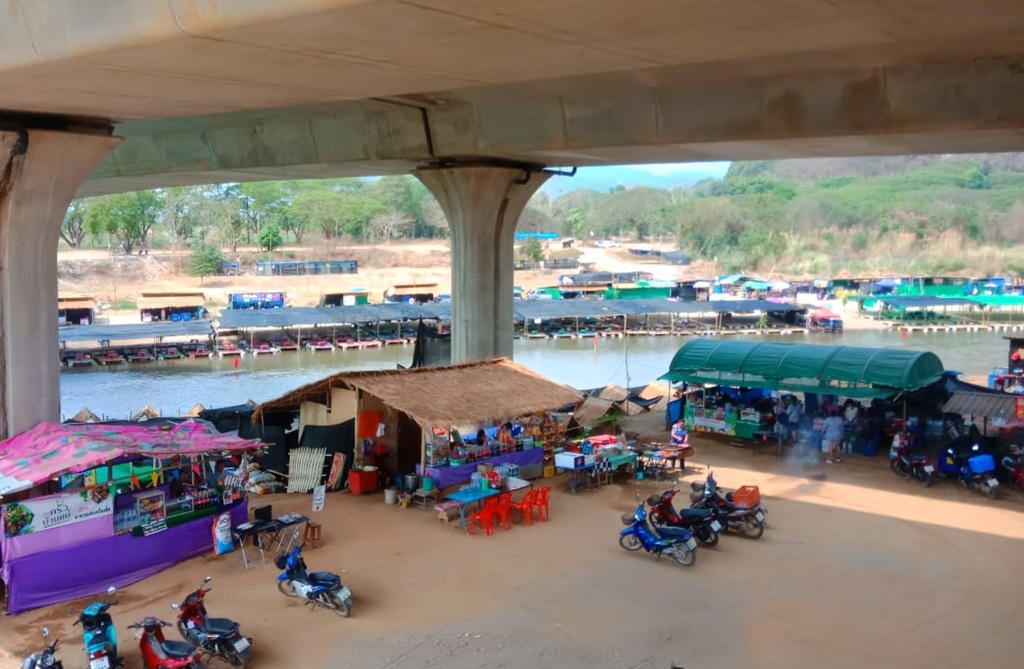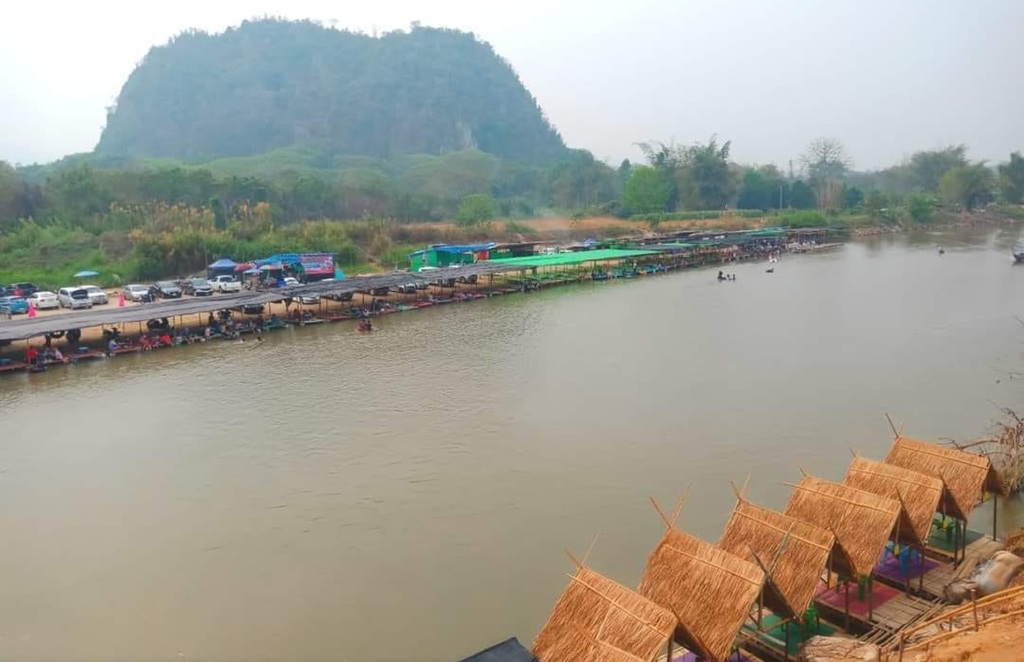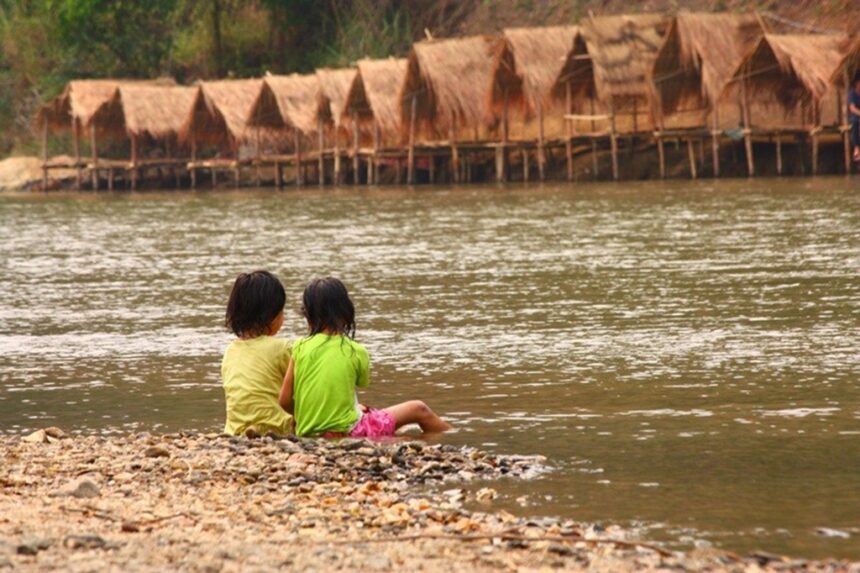On Wednesday Chiang Rai’s governor issued a temporary ban on using water from the Mae Kok River for household and drinking purposes. This discovery has not only impacted local farmers, but has also taken a toll on tourism and businesses operating near the river.
A popular cooling spot in Chiang Rai, the Chiang Rai Beach park in Ban Pangiew, Rim Kok Subdistrict, now sees far fewer visitors. Normally bustling during this time of year, the area has seen a significant drop in tourists, with only a handful of customers dining in small huts here and there.
Vendors along the Mae Kok river are feeling the pinch, many expressing frustration over the situation.
One vendor shared that news of arsenic contamination caused their income to plummet by over 90%. They described it as a more significant challenge than the COVID-19 pandemic when they were still able to make some sales.
Now, losses have stretched on for weeks, and they’re uncertain how much longer they can sustain their business. If conditions don’t improve, they may have to pack up and return to selling in their hometown.
However, they hope authorities will step in to resolve the issue and bring back visitors.
A tourist from Phayao province commented that they had heard about the contamination in the Kok River. While it raised concerns, particularly for locals relying on the water, they still visited to enjoy the scenery and dine by the river.
They noted a difference in water clarity compared to previous years when the river was much clearer.

Ms Suwanna, a 62-year-old restaurant owner at Chiang Rai Beach, shared her struggles. Originally from Thoeng District, she has been running her business in Chiang Rai for over a decade. During the COVID-19 pandemic, she managed to keep going, though with reduced customer seating.
Despite lower income, she was able to stay afloat. This time, however, the situation is dire. The contamination has driven customers away, leading to continuous losses for weeks. Unsold food has gone to waste, adding to her troubles.
Previously, during the Songkran festival from April 13 to 15, she could earn 30,000 to 40,000 baht daily from her three restaurant locations, all supported by one shared kitchen run by her family. On regular weekdays, she would make 1,000 to 2,000 baht daily.
This year, her earnings are in the negative, with daily expenses including wages for young workers from a foundation who rely on the income. She also covers their three daily meals, which adds up to around 2,000 baht in costs per day.

Despite everything, she holds onto hope that authorities will address the Mae Kok River’s contamination before Songkran. If no changes occur, she feels she’ll have to accept the unfortunate reality.
Ms Suwanna added that when customers visit, she informs them of the river’s situation, advising against swimming. However, some children, mostly workers’ kids, still play in the river under their parents’ watch. She also mentioned that the river’s murkiness began after flooding and hasn’t cleared up since.
Business owners in the area have discussed potential solutions but remain unsure about where to seek help. The problem isn’t isolated to one spot—it affects the entire river. She urged government officials to take action and restore the water quality.
Another vendor echoed similar concerns, saying the arsenic issue has devastated businesses along the Kok River. Where they once earned thousands of baht daily, some now make only 500–600 baht, and on some days, nothing at all.
Quitting the business isn’t an easy option since dismantling their setup would require additional expenses. They also feel responsible for young workers from various districts who have joined them during the school break.
These workers, paid 100 baht daily with meals included, use their earnings to support their education.
While COVID-19 posed its challenges, this situation feels even more damaging, as customers have completely disappeared. At least during the pandemic, they could adapt and still operate with social distancing measures.
Related News:
Chiang Rai Residents Report Mae Kok River Fish and Marine Life Dying

Anna Wong serves as the editor of the Chiang Rai Times, bringing precision and clarity to the publication. Her leadership ensures that the news reaches readers with accuracy and insight. With a keen eye for detail,














